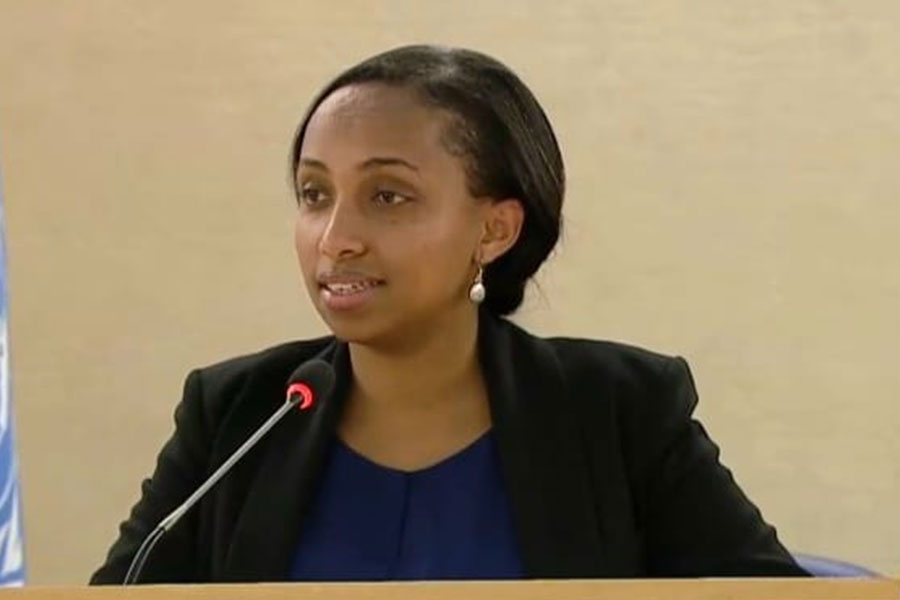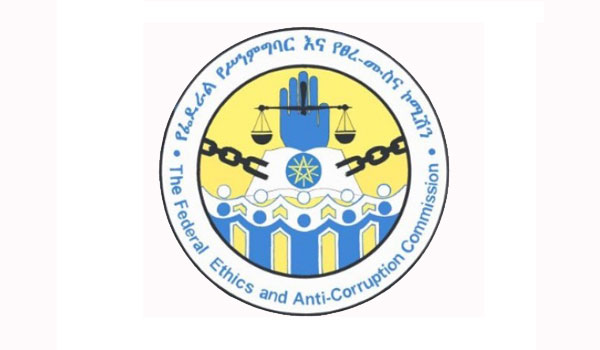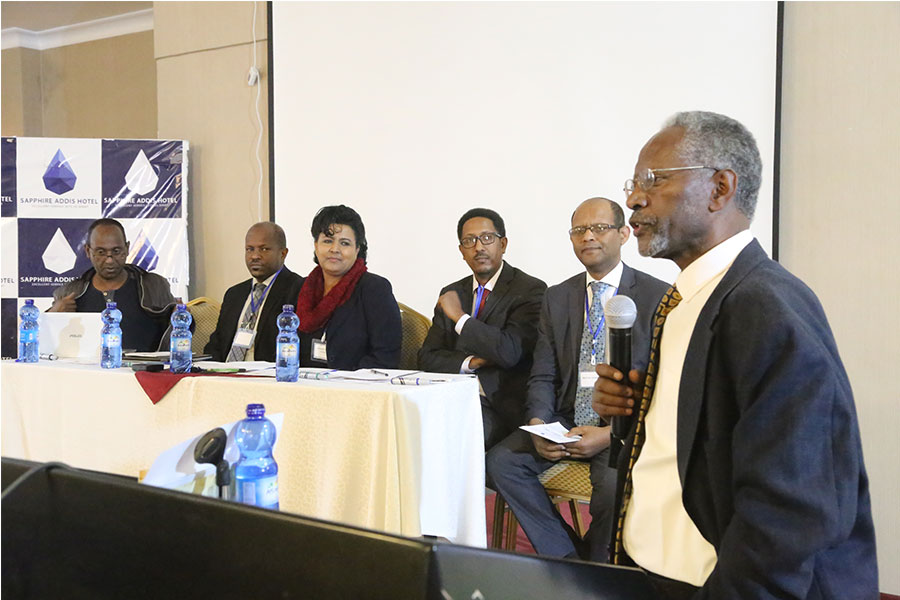
Fortune News | Apr 28,2025
The Ethiopian Investment Commission (EIC) has launched a new complaint system that will be handling grievances from investors in a standardised manner. The grievance management procedure aims at ensuring the timely resolution of investment grievances that occur in the post-implementation phases.
Dubbed the Investment Grievance Management Procedure (IGMP), the programme was carried out with technical support from the International Finance Corporation (IFC) and the financial support of the UK Foreign, Commonwealth & Development Office (FCDO). Reporting directly to the commissioner, the unit has an early warning and tracking mechanism to identify problems that arise around investments.
Two-thirds of investors consider withdrawing or cancelling their investment in the face of political risk or exposure, according to a study presented by the Commission during IGMP's virtual launch. The same research showed that 42pc of investors consider the legal environment a critically important factor and the lack of a standard grievance management procedure may push investors to consider the withdrawal or cancellation of investments and expansion plans.
The systematic grievance management procedure has been set up to address these challenges early on, according to a statement from the Commission.
The unit has been informally operational since early 2019. Still, it gained its legal mandate following the legislation of the issuing of the investment proclamation in January 2020, according to Lilanie Gudeta, team leader of the Unit. Since early 2019, although operating informally, the IGMP has managed 12 grievances, five of which have been successfully settled. It also has managed to save around 239 million Br in investments and around 590 jobs.
"The main goal of the system is to retain investment," said Lilanie.
In the past, different management procedures have been practised to settle pre-implementation and post-implementation grievances. One of these is the After Care Unit, which was set up to handle post-implementation issues and has now had its responsibilities shifted to address grievances that are not to be solved through the new unit.
Once an investor files a complaint, the nature of the issue and the status of the investor is analysed. If the disagreement occurred due to an administrative decision by a federal body that may include a misinterpretation of legal laws and regulations, international agreements or breach of contract, the grievance is referred to the new unit. Otherwise, the complaint is directed to the After Care unit.
Besides the status of the investment, which includes aspects such as its financial contribution to the country, the number of employees hired is assessed in this stage of the process. Grievances from major investments are classified to be high-risk and forwarded to the Investment Grievance Management Procedure, while the After Care unit manages low-risk issues.
Upon receiving complaints, the Grievance Management Procedure unit identifies the issue then classifies and assigns it to a grievance manager through its ICT based tool. The unit then consults with the respective federal government agency to find solutions to the problems listed.
Because the Grievance Management Procedure unit only addresses issues within federal agencies, disputes between investors and regional bodies are left to be managed by the respective regional administrations.
"Within the structure of the Ethiopian government, grievances that arose in regional government cannot be managed by the Federal IGMP unit," explained Addis Barega, IGMP project local coordinator for the IFC, which developed and implemented similar grievance management systems in several countries such as Bosnia and Herzegovina, the Dominican Republic and Georgia.
"As the procedure has proved beneficial," said Addis, "we plan to replicate the procedure and establish IGMP regional units."
Disputes that fail to be settled by the IGMP are referred to the Ethiopian Investment Board, a body chaired by the Prime Minister.
The formation of the unit is commendable, according to Mehrteab Leul, a lawyer with over 20 years of experience advising local and multinational companies on corporate and investment issues.
The major issues with foreign direct investments are land disputes, usually between investors, and taxation issues, according to Mehrteab.
"Even though the new unit doesn't operate to settle grievances among regional governments," said Mehrteab, "the establishment of an inter-regional government committee, as stated in the new investment proclamation, will be instrumental in handling these frequent regional issues."
PUBLISHED ON
Dec 19,2020 [ VOL
21 , NO
1077]

Fortune News | Apr 28,2025


Fortune News | Jun 08,2019

Fortune News | Jul 06,2025

Radar | Dec 19,2020

Radar | Jan 28,2023

Radar | Jan 26,2019

Fortune News | Nov 04,2023

Fortune News | May 16,2020

Editorial | Jun 20,2020

Dec 22 , 2024 . By TIZITA SHEWAFERAW
Charged with transforming colossal state-owned enterprises into modern and competitiv...

Aug 18 , 2024 . By AKSAH ITALO
Although predictable Yonas Zerihun's job in the ride-hailing service is not immune to...

Jul 28 , 2024 . By TIZITA SHEWAFERAW
Unhabitual, perhaps too many, Samuel Gebreyohannes, 38, used to occasionally enjoy a couple of beers at breakfast. However, he recently swit...

Jul 13 , 2024 . By AKSAH ITALO
Investors who rely on tractors, trucks, and field vehicles for commuting, transporting commodities, and f...

Jul 12 , 2025
Political leaders and their policy advisors often promise great leaps forward, yet th...

Jul 5 , 2025
Six years ago, Ethiopia was the darling of international liberal commentators. A year...

Jun 28 , 2025
Meseret Damtie, the assertive auditor general, has never been shy about naming names...

Jun 21 , 2025
A well-worn adage says, “Budget is not destiny, but it is direction.” Examining t...